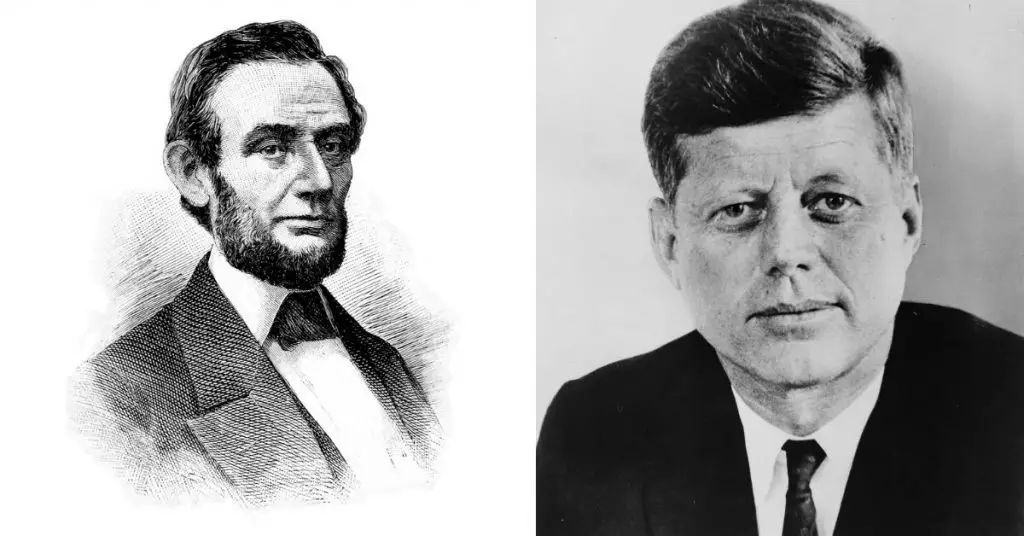Disclaimer: We sometimes use affiliate links in our content. For more information, visit our Disclaimer Page.
The influencer style is an essential dimension in understanding one’s leadership. An influencer leader can gain commitment from others by involving them in decision-making.
The style involves developing a vision and working with others to make it a reality.
The influencer leader has confidence in others and inspires them through encouragement, persuasion, and even gentle confrontation.
What is an influencer leadership style?

Influencer leadership is a style in which leaders can motivate their employees, peers, and other stakeholders by building productive relationships and collaborating. Influencers can rally people together by encouraging participation, sharing knowledge, and using their skills to benefit the team.
People who use an influencer leadership style tend to be good listeners, punctual and precise with due dates, very open-minded to new ideas from others, and enjoy helping others improve on their work through collaboration.
Related: 16 Leadership Styles
Are influencers considered leaders?
Influence is a very powerful factor in society. There are many different types of influencers, but they all have one thing in common: they influence the actions of their followers. Influencers can be celebrities or just everyday people who have an audience that looks up to them. In today’s world, they’re believed to be among the ranks of leaders and managers because of their ability to encourage their fans to take action.
Related: Theory of Leadership
The 7 Traits That Define Influential Leadership
When most people think about effective leadership, they picture qualities like vision, intelligence, charisma, and determination. However, this is only part of the story when it comes to being influential. So what are some other qualities that contribute heavily to one’s ability to lead people around him? Keep Reading…!
Trait #1: Visionary Mindset
“Vision is not just ‘seeing’ things; it’s also ‘creating’ them.”
By nature, influencers are natural-born visionaries. We aren’t content to accept the status quo for ourselves or others, so we set out to do something about it. Visionary leaders possess this quality in spades. They see opportunities other people don’t and understand how today’s challenges can provide tomorrow’s solutions.
Leaders with vision will encourage their team members’ ambitions even if they’re not fully exposed to them yet. They’ll build them up when they speak and back them when the time comes by offering support, guidance, motivation, and recognition. This makes Visionary Leaders unique: they look into the future and inspire their team to be a part of that innovative ideas.
Trait #2: Empathetic Motivator
“A leader is best when people barely know he exists, when his work is done, his aim fulfilled, they will say: we did it ourselves.”
People who lack empathy cannot motivate those around them to do better or break past their limitations–they don’t see the world from others’ perspectives. They can even be seen as toxic and counterproductive since they’re not motivated by meaningful long-term pursuits but short-sighted goals like attrition.
Empathetic leaders understand that true motivation stems from values rather than tangible rewards. Successful influencers can tap into this desire to be part of something greater than themselves and channel it into achieving challenging goals that benefit the entire team.
They can effectively rally their teams together, elevate them to new levels, and empower them to excel beyond what they thought was possible– all because they make each feel valued.
Trait #3: Well-Rounded Knowledge
“You don’t develop courage by being happy in your relationships every day. You develop it by surviving difficult times and challenging adversity.”
While Visionary Leaders set out to change the way things are, Reliable Leaders create new opportunities for success that didn’t exist before. Just as importantly, though, Reliable Leaders are also good at recognizing when circumstances need adapting.
Regardless of whether you have a leadership role or not, it’s essential always to be learning and engaging in observation. Seeing the big picture helps you connect ideas that may seem unconnected at first. This will enable you to take on new challenges with confidence, understand why specific strategies aren’t effective, and adjust your approach accordingly.
Trait #4: Principled Collaborator
“To do great things is difficult, but to command great things is more difficult.”
While Visionary Leaders set out a course for their team, Reliable Leaders work together with those around them to achieve these goals. That means responsibility should be shared equally to ensure every team member feels like they’re part of something special– not just the Visionary Leader.
Pragmatic influencers understand that collaboration requires them to fully put aside their ego and biases to commit themselves to the collective cause. As a result, they don’t worry about who gets credit for what or how things will be done later; they instead focus on results that will benefit everyone moving forward.
They also know not every team aspect is something they can control, so they make it a point to listen attentively, support one another, and show appreciation for one another’s efforts– all the while making sure the project’s vision stays on track.
Related: Team Leadership Style
Trait #5: Passionate Communicator
“To handle yourself, use your head; to handle others, use your heart.”
Visionary Leaders can inspire others. But, it’s also essential that a true Leader can communicate effectively with those around them to ensure everyone is on the same page before taking action. In addition, efficient communication helps you organize your thoughts and determine whether or not proposed plans will be successful given current conditions-all so you can adjust your approach if necessary.
Most importantly, though, passionate influencers know how to listen. They genuinely want to hear what other people have to say because they value their experience and input as much as their own. This makes every team member feel valued, thus contributing positively to the group dynamic overall.
Trait #6: Perceptive Problem-Solver
“It does not matter how slowly you go as long as you do not stop.”
While Visionary Leaders set out to change the world for the better, Reliable Leaders will quickly try and course correct if there’s a roadblock in their way. However, that doesn’t mean they should always expect things to go wrong. Rather, influential individuals should be highly observant, paying attention to subtle cues that could indicate an issue or opportunity that hasn’t yet been addressed.
The best followers also possess this ability to figure out what needs fixing (and what doesn’t) and communicate it effectively. They know when things are going south and feel confident enough to speak about it; however, they’re wise enough to do so in a constructive way that suggests how the situation might be remedied.
Trait #7: Self-Aware and Emotionally Intelligent
“No one can whistle a symphony. It takes a whole orchestra to play it.”
While Visionary Leaders may take on leadership roles, Reliable Leaders will also want others around them who can provide their unique perspective and guidance– not just those who share their same mindset. Therefore, it’s essential to seek out as much diversity as possible, as this allows for fresh ideas and the realization of potential the leader may have otherwise overlooked.
One should also know where they stand within things. This is especially true if there’s any doubt; in these instances, effective influencers are self-aware enough to ask for help, make their concerns known without hesitation, and take any necessary action when it comes to the well-being of themselves or others.
Thinking about your personal development and Knowing you’re not perfect can also help you see where your weaknesses lie so you can better recognize them in others– all of which translates into a more authentic relationship between Visionary Leaders and Reliable Followers.
Related: 5 Levels of Leadership
How to be a good influencer as a leader?

A true leadership influencer should gain trust and commitment from the team. Leadership influence will allow the team to understand the company’s vision and ultimately help bring out their best work.
It would also take employees time to build up this level of commitment, so it might not work for all people at all times. Leaders can influence by knowing how different personalities work best.
For example, some employees may focus better if offered increased rewards, while others may respond better to encouragement instead. Furthermore, leaders must listen and understand what matters most in influencing people’s emotions towards a direction or goal.
Leaders must also understand there is a difference between the emotions and feelings of an individual and those of the team. While different individuals may have negative feelings, the leader needs to show that they value everyone’s input.
Related: Leadership Behaviors
Thought leaders and Influencer leaders
There’s no big key difference. A genuine thought leader is an influencer in a variety of ways. They are not necessarily social media Influencers internet platforms. Not only do they know in a field, but they also enjoy sharing that information with others and influencing people’s ideas on the subject on a national level.
The vast majority of genuine influence is achieved by way of thought leadership. Inspiring and influencing others is one of the top reasons many thought leaders are also top business executives.
Influencer leadership examples

As leaders, there may be times when people do not follow the direction you set out for them. This is where influence can help. In addition, influential leadership has been found to generate higher motivation levels in followers.
The importance of influential leadership cannot be understated because it leads to greater employee satisfaction, higher productivity, and more growth for the organization.
Here we will explore some of the influencer leadership examples that you can follow. These are leaders who have been known for their influential leadership.
1. John F Kennedy
John F Kennedy was an American politician remembered as one of the most popular presidents. He promised to “pay any price, bear any burden” at his inauguration speech. He promised to make a difference, and he lived up to that promise. His style of leadership was influential because it inspire people from all walks of life to get involved in the decision-making process.
He sought new ideas from fresh thinkers, thus introducing innovative new policies into society. He would have been an excellent motivator in business because he communicated with his employees. Kennedy builds a positive reputation and uses communication as a critical leadership tool. He knew how to motivate people and encourage them to do their best for him and America.
2. Abraham Lincoln
Abraham Lincoln was another influential leader whose decision changed the course of history. In the 1860s, the United States was embroiled in a civil war over slavery – something that many found abhorrent. Slavery seemed like an antiquated idea in a changing world.
Lincoln went against the popular opinion at the time, but he stuck to his guns and held firm on what he believed was right. He defied many who tried to stop him from ending slavery, saying, “We are not enemies, but friends. We must not be enemies.”
He knew that there were severe consequences for formerly enslaved Africans during that era, but he made the tough decision anyway because he felt it was right. Because of this choice, racism in America has taken decades to overcome, and society is still struggling with this issue today.
This shows how influential Lincoln’s leadership style was because people followed him even though they did not know where it would lead them. As we know, great leaders empower everyone around, Lincoln’s best example among these types of leaders. He was also an excellent motivator because he knew how to communicate with people.
3. Martin Luther King Jr.
Another influential leader is Martin Luther King Jr, who encouraged the United States government to “get in their conscience and do what’s right.” Because of his strong determination and unwillingness to settle for second best, he helped create landmark laws that changed the course of history.
This shows how influential his leadership style inspired millions to strive for equality instead of settling for second best. If you are an influencer, then you will know that influence does not mean forcing your opinions on others but sharing them with respect so that people can decide whether they want to follow or not.
4. Barack Obama
Another good influencer is Barack Obama, who became President of the United States in 2008. Throughout his career, he has had many achievements that people remember him for, including ending the Iraq war and increasing citizens’ healthcare insurance.
Related: What is Charismatic Leadership?
5. Gautama Buddha
Gautama Buddha was an influencer as he was a teacher and philosopher who founded Buddhism. His teachings were influential because many people followed him and remained loyal to Buddhism. In addition, he taught leadership lessons that we can all learn from, such as how important it is to be detached from material things in your life.
Final Thoughts
In the past, leaders have been defined as those who hold positions of power and authority. However, a new type of leader has emerged – the influencer leader. Influencers can gain commitment from others by involving them in the decision-making process.
They do this by developing a vision and working with others to make it a reality. The style involves having confidence in oneself and inspiring others through encouragement, persuasion, or even gentle confrontation if necessary.
An influencer leader can influence others positively, for example, by motivating them or inspiring them. Such leaders make a positive change with a long-lasting effect.





